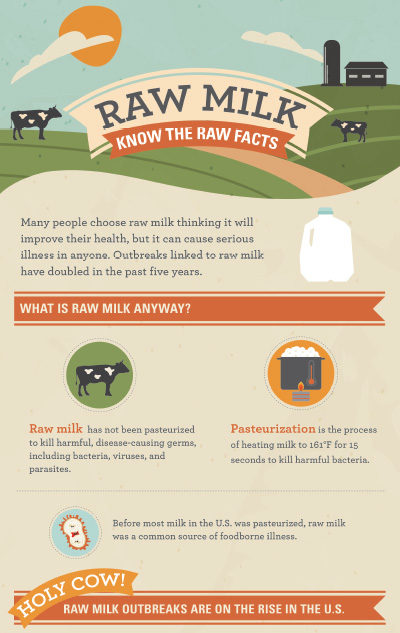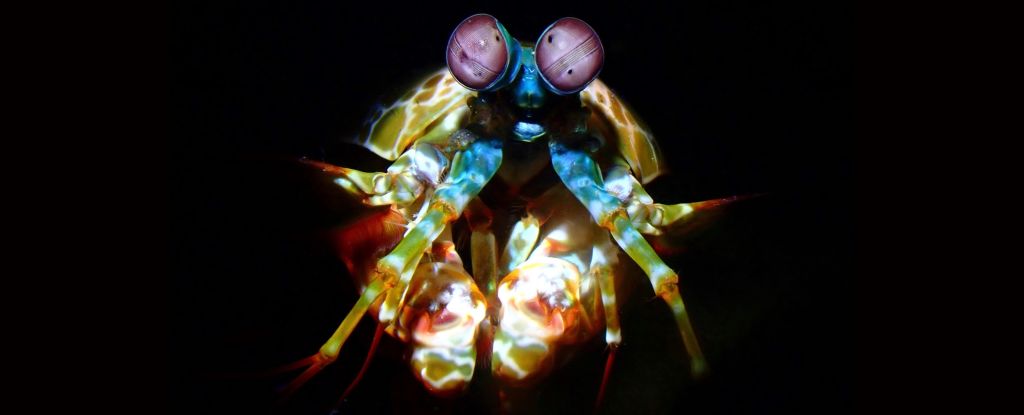ARTICLE AD
Drinking raw milk is a dangerous choice made all the more risky by the recent outbreak of bird flu in the United States.
California state health officials have now detected highly pathogenic avian influenza in unpasteurized milk for sale in Fresno, a county of Los Angeles.
"Many retailers in Los Angeles may have sold recalled raw milk that may be contaminated with H5 bird flu virus," warns the county health department.
At the state's request, the company behind the raw milk, called The Raw Farm, has voluntarily recalled all of its 'cream top, raw milk' products with a best buy date of November 27.
Health officials say retailers that sold the infected batch, including a store on Santa Monica Boulevard, should remove these products from their shelves. Inspectors will be checking to make sure establishments have done just that.
Thankfully, no one on record has fallen ill with bird flu from the contaminated raw milk.
However, the public health department cautions that "due to the ongoing spread of H5 bird flu in dairy cows, poultry, and sporadic human cases, consumers should not consume any of the affected raw milk."
 Information on raw milk provided by the US Centers for Disease Control and Prevention. (CDC)
Information on raw milk provided by the US Centers for Disease Control and Prevention. (CDC)The US is the first place in the world where scientists have confirmed an outbreak of avian influenza among dairy cows, and the virus seems to be spreading through milk, which can turn thick and discolored when the animals are acutely ill.
The outbreak hit California dairy farms in the late summer, and shortly thereafter, some dairy workers handling the raw milk began to fall ill with avian influenza themselves. Today in the state, more than 400 dairy farms are suffering outbreaks of avian influenza.
Since April, there have been just over 50 human cases of bird flu, and health officials say the threat to human health remains low. At this point, the virus can't seem to jump from human to human, but it is infecting dozens of different mammals and birds around us, including our pets, who can get us sick.
"We are in a soup of virus. I mean, there's virus everywhere around us at this point," Marcela Uhart, a wildlife veterinarian with the University of California Davis reportedly said at a symposium held by the O'Neill Institute at Georgetown Law recently.
As health officials scramble to control the spread of avian influenza among dairy cows, pasteurization is key.
The process works by heating milk to a high enough temperature that it kills off harmful germs. Pasteurization does not eliminate milk's nutritional value; it just makes it safer to drink.
California allows the retail sale of raw milk with a warning label that says: "Raw (unpasteurized) milk and raw milk dairy products may contain disease-causing microorganisms. Persons at highest risk of disease from these organisms include newborns and infants; the elderly; pregnant women; those taking corticosteroids, antibiotics or antacids; and those having chronic illnesses or other conditions that weaken their immunity."
Legally, raw milk can only be sold if the dairy farm it comes from "meets specific requirements for sanitation and licensing." But recent reporting from the LA Times finds many dairy farms in California have taken few precautions against avian influenza.
Research suggests about 4 percent of adults in the US drink unpasteurized milk at least once a year, so the overall threat from this one spoiled batch of raw milk is low.
But each time a person consumes raw milk, they leave themselves open to dangerous pathogens, such as listeria, salmonella, Campylobacter, and E. coli and these can risk individual and community health.
Bird flu now joins the list.

 2 months ago
95
2 months ago
95 

